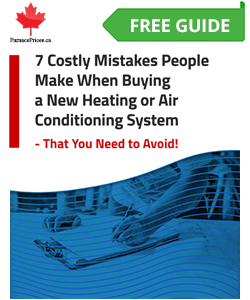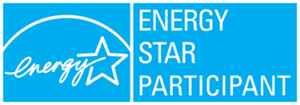This Lennox furnace price guide will break down the real costs associated with buying a Lennox furnace. We’ll cover unit costs, installation and labour prices, and tell you what you can expect to pay for add-ons like Lennox smart thermostats and air purifiers.
To help you budget for a Lennox furnace, we’ll also break down unit costs by size, tell you what real Canadians have paid to buy and install Lennox heating systems, and provide you with tools like calculators and potential rebates.
We’ll also tell you how Lennox prices compare to a few comparable brands to give you a solid idea of the type of value to expect from a Lennox product, and to explore what else might be out there for you.
Read our full Lennox Furnace Review here >>
Lennox Furnace Typical Price Range

Higher than average
Slightly above-average price range, which may be due to factors like a more complicated installation, or purchasing a top-of-the-line unit or premium brand.

Typical price range: $3,500 – $7,800
The average price range for a typical high-efficiency unit with a typical installation from an established, fully licensed & insured local HVAC contractor. Prices will vary within this range based on installation factors, brand & model, unit size/BTU output & efficiency, among other things.

Lower than average
Below-market pricing; be careful if the price is exceptionally low. The lower the price is below average, the higher likelihood that you may receive a more hastily done installation, low-end or used components, limited labour warranty coverage & ongoing support, or the company may be less established or lacking in insurance and/or licensing & certification.
Lennox Furnace Unit Prices and Model Tiers
Entry-Level Merit Series: $3,500 to $5,000
The furnaces in this tier are ideal for homeowners with a smaller budget who still want the prestige of the Lennox name.
Some of the furnaces in the Merit series are single-stage, constant torque models with AFUEs of 93 to 96 percent, making them better suited for smaller homes, such as townhouses, condos, and semi-detached houses. At the same time, there is one option in this series that’s two-stage with a variable-speed blower and an AFUE of 96 percent, so it should be powerful enough to keep just about any home warm.
If you’re looking for benefits like ENERGY STAR® certification and high AFUEs, then you should find something in Lennox’s Merit series. Moreover, the furnaces that meet those standards might also qualify for rebates, so keep that in mind when you’re weighing your options.
Merit furnaces are entry-level, and while that means they are Lennox’s most affordable furnaces, it also means they come with a shorter warranty than models from other tiers. Lennox’s entry-level units come with a 10-year parts warranty and 20-year heat exchanger warranty. Despite being a premium brand, you should know that Lennox furnaces come with a very basic warranty compared to a lot of other brands.
Aside from the shorter warranty, Merit furnaces come with all the perks that other Lennox furnaces offer, including having a secondary heat exchanger, being dual-fuel compatible, being equipped with the brand’s proprietary Duralok Plus primary heat exchanger, offering extremely quiet operation, and being compatible with one of the brand’s iComfort smart thermostats.
Mid-Range Elite Series: $4,500 to $6,500
Lennox’s mid-range Elite series furnaces are ideal for homeowners who have a larger budget and want a high-end furnace that’s backed by a premium brand name that’s renowned and reputable.
There’s obviously a rather large price difference in the Elite series between the more affordable models and the most expensive ones, and a lot of that has to do with whether the model is single-stage or two-stage, and whether it has a constant torque motor or a superior variable-speed one.
Whether you’re looking to save money on energy bills, reduce your energy use for the environment, or lower your emissions for the planet, the Lennox Elite series furnaces will have something for everyone, including models with AFUEs of 95 and 96 percent and a furnace with the lowest nitrogen oxide emissions on the market.
The furnaces in this tier have all the same features and benefits as the Merit models, like the secondary heat exchanger, proprietary primary heat exchanger, and extremely quiet operation. Beyond that, the additional cost will also get you a longer lifetime heat exchanger warranty and compatibility with a more sophisticated iComfort smart thermostat.
If you’re looking to save money on a mid-range Lennox furnace, then look for rebates that might be available for their ultra-low NOx or high-efficiency two-stage models.
Models:
Premium Dave Lennox Signature Collection Series: $6,500 to $7,800+
Premium Lennox furnaces are ideal for homeowners who have a very sizeable budget for a new furnace and who want the best in terms of brand name, reputation, quality components, and efficiency.
The furnaces in Lennox’s Dave Lennox Signature Collection series are some of the highest performing models on the market, and that includes their premier unit, which has an AFUE of 99 percent and is the most efficient and quietest furnace on the market.
Whether you want something two-stage or modulating, Lennox’s premium furnaces are extremely quiet, have low emissions ratings, and have AFUEs between 97.5 and 99 percent. They are also equipped with secondary heat exchangers, are dual-fuel compatible, and are great for the environment either because of their ultra-high AFUE or ultra-low NOx emissions.
Although these are premium furnaces from a high-end brand, they don’t come with a better warranty than Lennox’s mid-range Elite series, and they don’t come with the unit replacement warranties that many more affordable brands have started offering.
Further, Lennox doesn’t have a ton of cool or novel features, but the Dave Lennox Signature Collection furnaces are compatible with their most advanced iComfort smart thermostat, which has a lot of great capabilities.
These furnaces are among the most expensive on the market, but their high-performance and great efficiency ratings mean they’ll have no trouble keeping any home warm through Canada’s coldest winters. They’ll also save you plenty on annual heating bills, and they should qualify for any rebate out there.
Models:
Lennox Furnace Unit Prices
Why is there a range in unit costs for a given model? The cost of the unit may vary based on a variety of factors like the volume of units a contractor purchases, the region, and availability and supply chain constraints, among other things.
| Model | Unit Price | Installed Price |
|---|---|---|
| Dave Lennox Signature Collection SLP99V | $3,250 - $3,750 | $6,500 - $7,800 |
| Dave Lennox Signature Collection SL297NV | $3,000 - $3,500 | $6,500 - $7,500 |
| Lennox Elite EL296V | $2,750 - $3,250 | $5,500 - $6,500 |
| Lennox Elite EL296E | $2,750 - $3,250 | $5,500 - $6,500 |
| Lennox Elite EL196E | $2,500 - $2,750 | $4,500 - $5,500 |
| Lennox Elite EL195NE | $2,500 - $2,750 | $4,500 - $5,500 |
| Lennox Merit ML296V | $2,250 - $2,500 | $4,000 - $5,000 |
| Lennox Merit ML196E | $2,250 - $2,500 | $4,000 - $5,000 |
| Lennox Merit ML193E | $2,000 - $2,250 | $3,500 - $4,500 |
Lennox Furnace Cost Calculator
Lennox Installation Costs
When upgrading a furnace, you don’t just have to budget for the furnace itself—you also have to put money aside for the installation.
The average cost to buy a Lennox furnace is between $3,500 and $7,800, and that includes installation. That’s a pretty large price range, so let’s break down the cost a little more because this will help you make more informed decisions.
Lennox units cost between $2,000 and $3,750. The final price will depend on the tier the unit falls into, the size and heating output you need for your home, the efficiency rating, and the unit specifications (such as whether it’s single-stage, two-stage, or modulating).
On top of that, you also have to factor in the materials required for installation, which can cost anywhere from $250 to $750-plus. Materials can be things like piping and sheet metal.
And then you have installation and labour. Those generally run between $600 and $1,000, but they can be more. Here are some of the factors that can impact installation costs:
- How easy or difficult the job is
- Where the unit is being installed
- Whether the contractor is working alone or has an assistant or apprentice
- Whether you’re switching furnace fuels and if the right infrastructure is in place
- Where you live (rural versus urban) and how far a contractor must travel to get to you
- Where the nearest source is for materials and equipment
To get the best price on your furnace upgrade, get quotes from at least three contractors. And just remember, the cheapest price doesn’t always give you the best value.
Oftentimes, some contractors are more expensive than others because they have higher fixed costs, but that can mean faster service, better and friendlier staff, more proficient technicians, better training for the contractors, more permanent technicians on staff, and more reliable service.
Overhead for HVAC companies can cost upwards of $100,000 per year, and that’s because they have to cover things like:
- Rent
- Utilities
- Vehicles and fuel
- Business and vehicle insurance
- Phones, internet, and websites
- Professional services
- Support staff salaries
- Advertising, marketing, and promotions
- Licences and permits
- Ongoing training
Learn more about The Truth About Furnace (and A/C) Pricing.
Prices for Lennox Add-ons, Extras, and Thermostats
Smart Thermostats $250 – $750: Lennox has a series of proprietary smart thermostats called iComfort thermostats. There are different models for different furnace tiers (M30 for Merit furnaces, E30 for Elite, and S30 for Dave Lennox), and they come with a variety of capabilities. The most sophisticated model, the S30, has the most features, including:
- Outdoor air quality monitoring
- Automatic fan setting adjustments to protect indoor air quality
- Geofencing
- Voice control when paired with devices like Alexa and HomeKit
- Active system monitoring
- Automatic alerts sent to your HVAC technician
Programmable Thermostats $100 – $300: Programmable thermostats aren’t as advanced as smart thermostats because they aren’t Wi-Fi compatible and you can’t control them remotely. However, they can still save you money on energy bills by enabling you to set various schedules throughout the day and throughout the week to reduce energy costs and maximize your home comfort. Lennox has a series of programmable thermostats called ComfortSense thermostats, which have capabilities like energy reports, dual fuel operation control, sleep and away modes, and maintenance reminders.
Zoning Systems $1,500 – $4,000: Lennox makes two- and four-zone system controls that pair with their thermostats (or other compatible thermostats) to give you access to zoned climate control, meaning different parts of your house can be set to different temperatures and have unique fan settings. Zoned systems are great for large homes, homes with distinct areas or specialized rooms (like sunrooms), and homes with rooms that are used more or less than others.
Air Purifiers $1,250 – $2,500: Air purifiers are ideal if you have concerns about your indoor air quality. That could be because of allergies, asthma, pollution, mould, smoke, or a number of other reasons. Lennox has a number of choices when it comes to air purification, including their PureAir and PureAir S systems that eliminate allergens like pollen, dander, mould, and dust, pathogens like bacteria and viruses, and other contaminants like VOCs, ozone, and odours. Lennox also makes media air cleaners, hospital-grade HEPA filters, and UV germicidal lights.
Humidifiers $750 – $2,000: Humidifiers add moisture to the air, thereby making your home more comfortable, protecting your furniture and wood, eliminating static electricity, and preventing dry noses, throats, and skin. These devices can also make it easier for your furnace to keep your home comfortable, and Lennox has several whole-home humidifiers to choose from.
Dehumidifiers $750 – $2,000: For homes that have too much moisture, which can overburden your air conditioner and cause moisture damage and mould, Lennox has whole-home dehumidification systems that will remove excess moisture from the air throughout the house.
Heat Recovery Ventilators $1,500 – $4,000: HRVs are devices that increase circulation and ventilation while constantly bringing fresh air into your house. One of the great things about these devices is they also transfer heat between the incoming and outgoing air, so they don’t put an additional burden on your furnace or air conditioner when they supply your home with fresh air. Lennox has one HRV model that is great for homes in colder climates.
Energy Recovery Ventilators $2,000 – $4,500: Lennox also makes an ERV, which functions on the same principle as an HRV, but with one key difference: an ERV transfers both heat and moisture between incoming and outgoing air. These devices, therefore, are great for humid climates because they don’t allow humid air into the house from outside.
How Do Lennox Furnace Prices Compare to Other Brands?
Lennox versus Carrier
Carrier is one of the most comparable brands to Lennox in terms of reputation and pricing. On average, Carrier furnaces cost between $3,500 to $7,750, so they do have some models that are both more expensive and more affordable than Lennox furnaces.
There are some similarities between the tier and models that Lennox and Carrier offer. Carrier’s top-of-the-line unit is a modulating, variable-speed furnace with an AFUE of 98.5 percent, and their entry-level model is a single-stage, multi-speed heating system with an efficiency rating of 92.1 percent. And in the middle, Carrier has similar pairings to Lennox, including single-stage plus variable-speed and two-stage plus variable speed.
One area where Carrier surpasses Lennox is with novel features. They have several technologies that add to the performance and efficiency of their units, including Greenspeed® Intelligence, a couple of humidity control features, and customizable fan speeds.
Like Lennox, Carrier furnaces are dual fuel compatible, can be controlled with Carrier’s proprietary smart thermostat, have secondary heat exchangers, and most have ECM blower motors.
Carrier also offers a lifetime heat exchanger warranty on more of their furnaces: every model except one comes with this level of protection.
One thing Carrier lacks, however, is an ultra-low NOx model.
Lennox versus Armstrong Air
Armstrong isn’t in the same tier as Lennox as far as brand prestige and pricing: their name isn’t as well-known, and their furnaces cost between $3,500 and $5,600.
But it’s still worthwhile comparing the two because the same parent company is responsible for both brands. The company that makes Lennox furnaces is Lennox International, and they also own Allied Air Enterprises, LLC, which makes furnaces under the Armstrong name.
Although Armstrong might not be as well-recognized or have the same reputation as Lennox, there are quite a few parallels between the two brands. Armstrong also has their own smart thermostats, a proprietary heat exchanger design, furnaces that promise quiet operation, dual fuel compatible units, low NOx models, and more.
One thing that Armstrong offers that Lennox doesn’t is a lifetime heat exchanger warranty on all their high-efficiency furnaces, and they don’t charge as much for their products.
Because of the connection between the companies, Lennox and Armstrong have comparable models.
For example, Armstrong’s premier unit is a modulating furnace with variable-speed capacity, though it only has a 97 percent AFUE (which is still really good). Similarly, Armstrong’s entry-level model is a single-stage, constant torque furnace with an AFUE of 93 percent.
In other words, while Armstrong doesn’t have the prestige of the Lennox name, you can get a comparable furnace from them with a better warranty at a much lower price.
Lennox versus Trane
Trane isn’t quite as expensive as Lennox, but it does cost between $4,500 and $7,100 to buy and install a high-efficiency Trane furnace.
Trane has single-stage, two-stage, and modulating units.
Their best model is modulating with variable-speed capacity, and it has an AFUE of 97.3 percent. However, it has some perks that Lennox’s top model doesn’t, including a self-diagnostic control board and communicating capabilities.
In the mid-range, Trane has some two-stage, variable speed models and two-stage, constant torque models with AFUEs between 95 and 97 percent.
Entry-level Trane models are single-stage furnaces with AFUEs between 92 and 96 percent.
There are some similarities between the two brands in terms of design elements, including secondary heat exchangers and dual fuel compatibility, as well as models with special selling features, such as extremely quiet operation or ultra-low NOx emissions.
Most high-efficiency units from Trane come with the same 10-year parts and lifetime heat exchanger warranty that Lennox offers for their mid-range and premium units, with the exception of Trane’s ultra-low NOx model, which only has a 20-year heat exchanger warranty.
Plus, all Trane furnaces are compatible with the brand’s superior furnace filter, CleanEffects, which is more affordable than buying a whole-home air purification system.
Lennox Furnace Deals & Promotions
Check out our Local HVAC Deals page for possible discounts and promotions on Lennox furnaces in your area.






